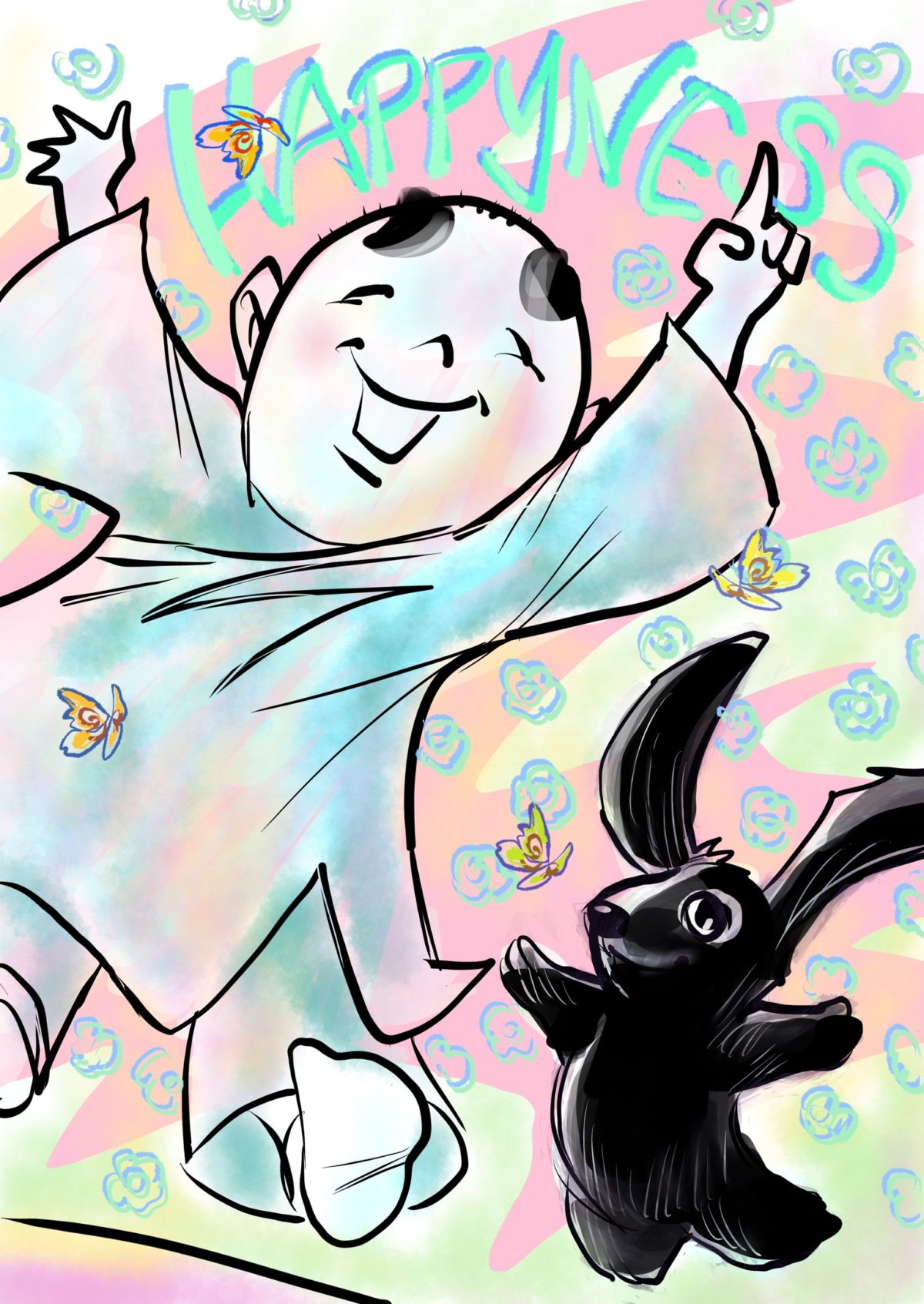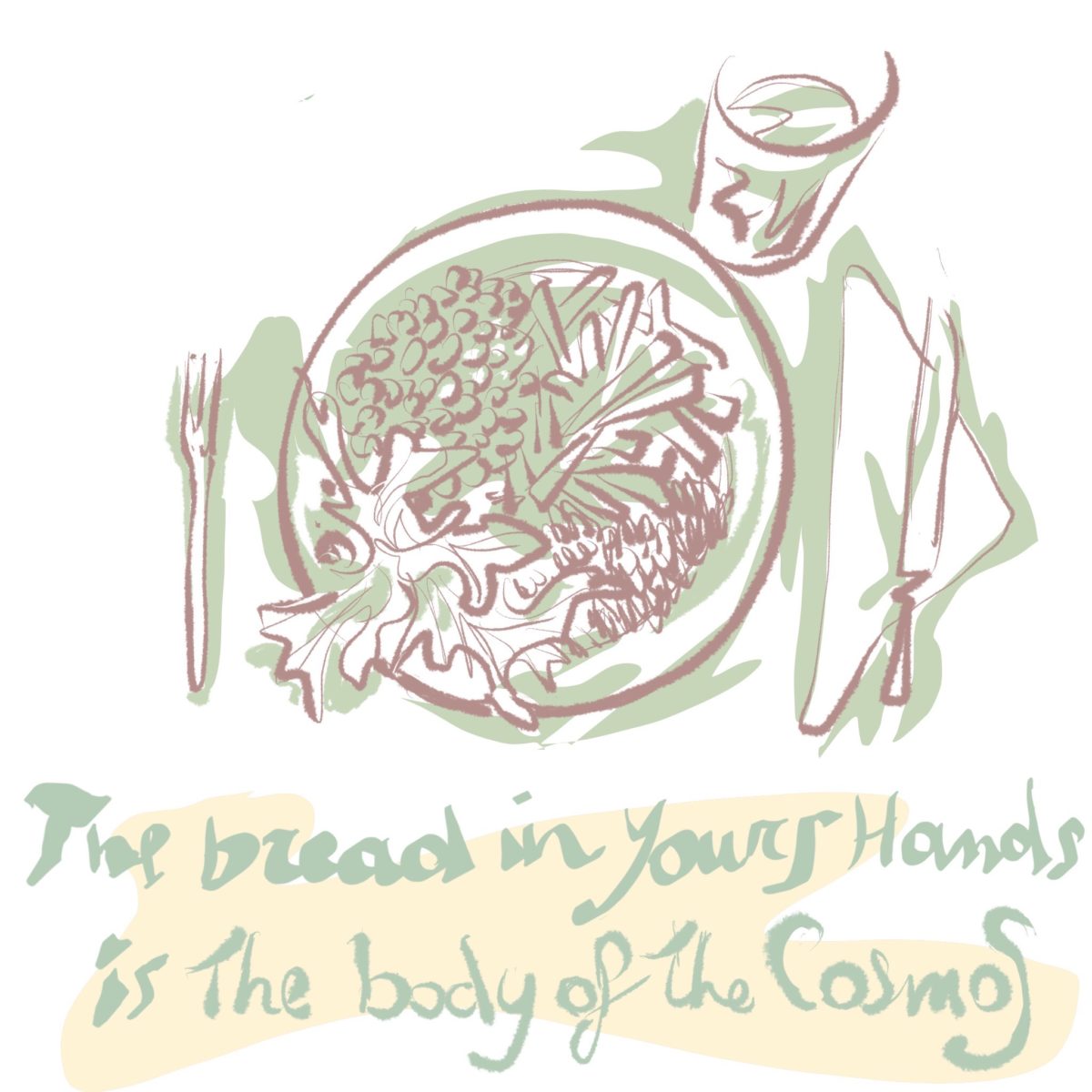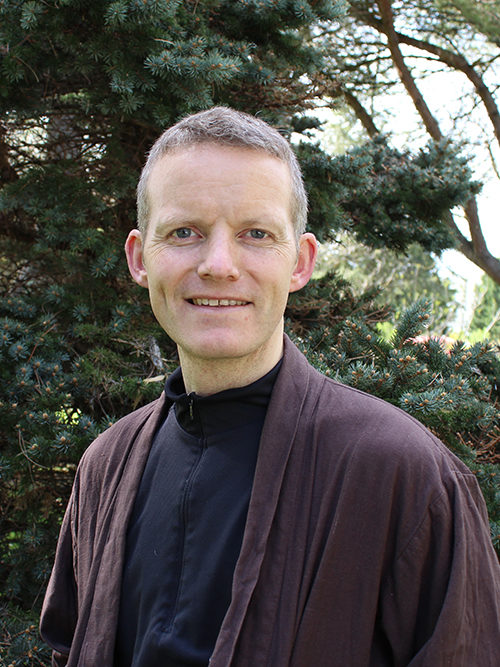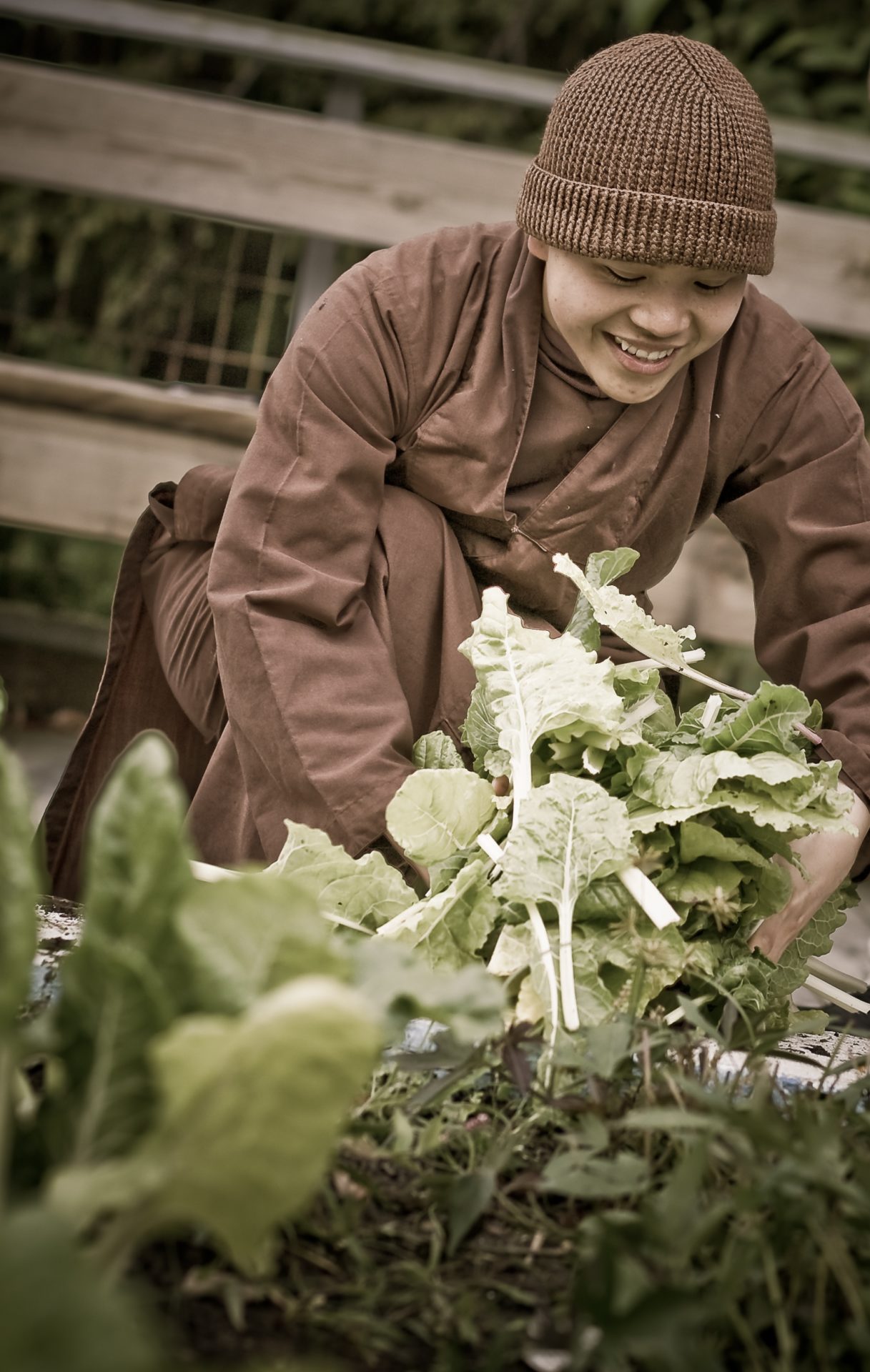By Mark Bogues

Even after three years of intensive practice, it’s still not easy to write this article. I will share embarrassing behaviors that my manas would prefer to hide behind the airbrushed image I would like people to see, even though I’m aware of some pride and desire arising in me. (1) Learning to truly see myself and to let others see me has been a gradual process and a deeply rewarding experience: a wonderful concoction of self-acceptance,
By Mark Bogues

Even after three years of intensive practice, it’s still not easy to write this article. I will share embarrassing behaviors that my manas would prefer to hide behind the airbrushed image I would like people to see, even though I’m aware of some pride and desire arising in me. (1) Learning to truly see myself and to let others see me has been a gradual process and a deeply rewarding experience: a wonderful concoction of self-acceptance, trust, confidence, and faith. Often, the suffering that seems to isolate us can actually connect us.
I have always had a strong interest in health and nutrition, and through the time I’ve spent in Plum Village, I have come to have a deep gratitude for any ailments that I have experienced. My ill health helped me to recognise that I have much to learn about the needs of my body and mind. When embraced, these lessons have often delivered better health than before.
EATING FOR EFFECT
For many years I suffered from a condition called hypoglycaemia (low blood sugar levels), and I could not go for longer than two or three hours without eating. I would live in fear of getting hungry because the experience was very unpleasant. My hands would develop a fine tremor; I would begin to perspire, and I would become easily irritated and angry, unable to think clearly. As you can imagine, this created problems in my personal and professional life. In order to manage this, I would always carry food with me. Oatcakes and muesli bars were never far from hand, and life was planned around eating. I felt this was something I was going to have to live with.
In my first year of living in Plum Village, I would never be far from the dining hall as meal times approached, and I would always be one of the first in line. As time passed, I noticed that I wasn’t experiencing so many of my hypoglycaemia symptoms. I thought this was due to less stress in my daily life and a greater sense of confidence around meals, which came from the clockwork schedule of meal times. This alone was an incredible breakthrough for me, but little did I know that my relationship with food would be more complex and deeply rooted than I had imagined.
In a monastery, there are not many opportunities to lose yourself in sensual pleasure, and food can become a significant object for desire. There is so much to learn in how we relate to food; it wasn’t long before I became aware of more of my own habit energies in this regard.
One of the first things I observed was that I often ate “for effect.” With hypoglycaemia under control, I noticed that it wasn’t so much about being hungry or the taste of the food, but rather I was searching for the feeling of satiety that came from overeating. This was combined with an almost sedative effect I experienced after eating more than I needed. There are many biochemical and psychological explanations for this effect.
By looking at me, you never would have guessed I was someone who would overeat; I wasn’t overweight. I looked healthy, and I was rarely ill.
The more I became aware of how I was relating to food, the more I observed some patterns that indicated I was using food for more than its intended purpose. More often, these overindulgences happened later in the evening when I was more prone to feelings of loneliness, boredom, tiredness, and uncertainty. I practiced lazy evenings with no planned activity, and I ate second helpings at dinner. I went to the local supermarket to buy chocolate and biscuits, and tried to conceal my consumption from those I felt might be judgmental and with whom I wanted to maintain my image of being in control. I recognised a relationship between the desire to overeat and the desire to lose myself in watching a movie. There was something about these two activities that seemed to go hand in hand—the perfect combination for zoning out.
After overindulging, I often experienced a deep shame and a wracking guilt as my mind would turn in on itself. Although I had some insight about the impermanence of these feelings, they were still very painful to go through.
This post-indulgence suffering could last for several days. As it generally occurred in the evening, the first effect would be a loss in the quality and quantity of my sleep. Even if I were able to sleep, it would be fitful because of the heightened state of activity in my mind and body. The next few days would rarely go well as my motivation to practice would plummet. I recognised that the stability and solidity of my practice and state of mind were severely compromised. It normally took two or three days to re-establish my balance.
The use of food to cover up suffering is not new. I remember in the first year of being in Plum Village, I was sitting with a dear friend who was suffering at the time. I said that I had some cookies we could enjoy with a cup of tea. When I pulled out the packet, he was shocked to see only one for each of us and exclaimed, “What am I supposed to do with one cookie?” I understand now exactly how he felt.

THE PRECIOUSNESS OF THE BODY
Over time, I have noted four factors that would influence what and how much I have chosen to eat:
1) Was I suffering, tired, bored, or anxious?
2) Was I hungry?
3) Was there a sufficient amount of the food to have the desired effect?
4) Did I think that someone whose good opinion I craved would notice my consumption, or would the conditions allow me to eat on my own?
I remember my last major binge. It was on December 16, 2016, Ordination Day at Plum Village—a day when cakes and cookies are abundant. Many of the above conditions were met. Suffering arose, and an all-too-familiar pattern of events unfolded. The following day, I was speaking to my wife, who was going through a particularly difficult time after the loss of her father, other family members, and close friends. I was tired, irritable, and unable during that moment to provide the stability and support she needed. Afterwards, I felt terrible. This was the last drop of suffering I needed to tip the scales towards a significant change in my behavior. I had mindfully experienced enough suffering to realize the folly of my actions in a deeper way, and I changed in a very fundamental way.
In order to support this change, I knew that I wouldn’t be able to rely on discipline alone, and that I needed a better understanding of nutrition and biochemistry and a deeper insight into what I was doing. I had always found the touching the Earth practice to be powerful, so I began a daily practice of touching the Earth in gratitude to the wonder that is the body. I see that when you have insight about the preciousness of the body, you start to care more about what you put into it. The analogy I find helpful for my inner child is that if someone gave us the car of our dreams, we wouldn’t even consider putting used oil from a deep fat fryer into it. I began to make food choices that further supported the stability of my blood sugar and minimized the craving for certain types of food.
Living in Plum Village, I know that I’m never going to have full control of my environment, so I have to arrive at a place where I can live in the presence of temptation. To support this, I have placed my favorite chocolate bar on the table in our bedroom and labeled it with the words: “Hello Mark, before you eat me: Remember that one piece often leads to more, and more often leads to suffering. If you suffer, please journal your experience instead.”
Six months later, I feel so much more stable in my body and mind. There are still challenges, but I haven’t felt like reverting to my previous coping behaviors. From time to time, I still see myself eating when I’m bored or restless, but it feels very different from before. With continued mindfulness, I am confident that this habit will fall away. I continue to touch the Earth in gratitude to my body because I see that this insight needs to be nourished. My understanding leads to actions that aren’t limited to food choices but that help me show appreciation of the body for all the ways it supports me.
For the upcoming three-month winter retreat, I have the idea to offer a sharing group on this subject so that I can continue to support others and myself on our journey to better health.
1 Manas is the discriminating consciousness that creates belief in a self and distinguishes self from other. It craves pleasant feelings, ignores the goodness of suffering, and does not know moderation.

Mark Bogues, (Chan An Niem - True Mindfulness of Gratitude), and his wife have been living for three years in Upper Hamlet, Plum Village, France. They received the Fourteen Mindfulness Trainings together in 2016.

